"Whether the price is virtual or not, the locality knows best"
Regarding the issue of land valuation, which is considered the core issue and also the most difficult issue in the Land Law, Mr. Khanh said that the draft law has been absorbed and revised to stipulate that land valuation must ensure the principle: land valuation method according to market principles. In addition, the draft adds specific provisions on the content of 4 land valuation methods, including: direct comparison, deduction, income and land price adjustment coefficient as the basis for the Government to specify in detail.
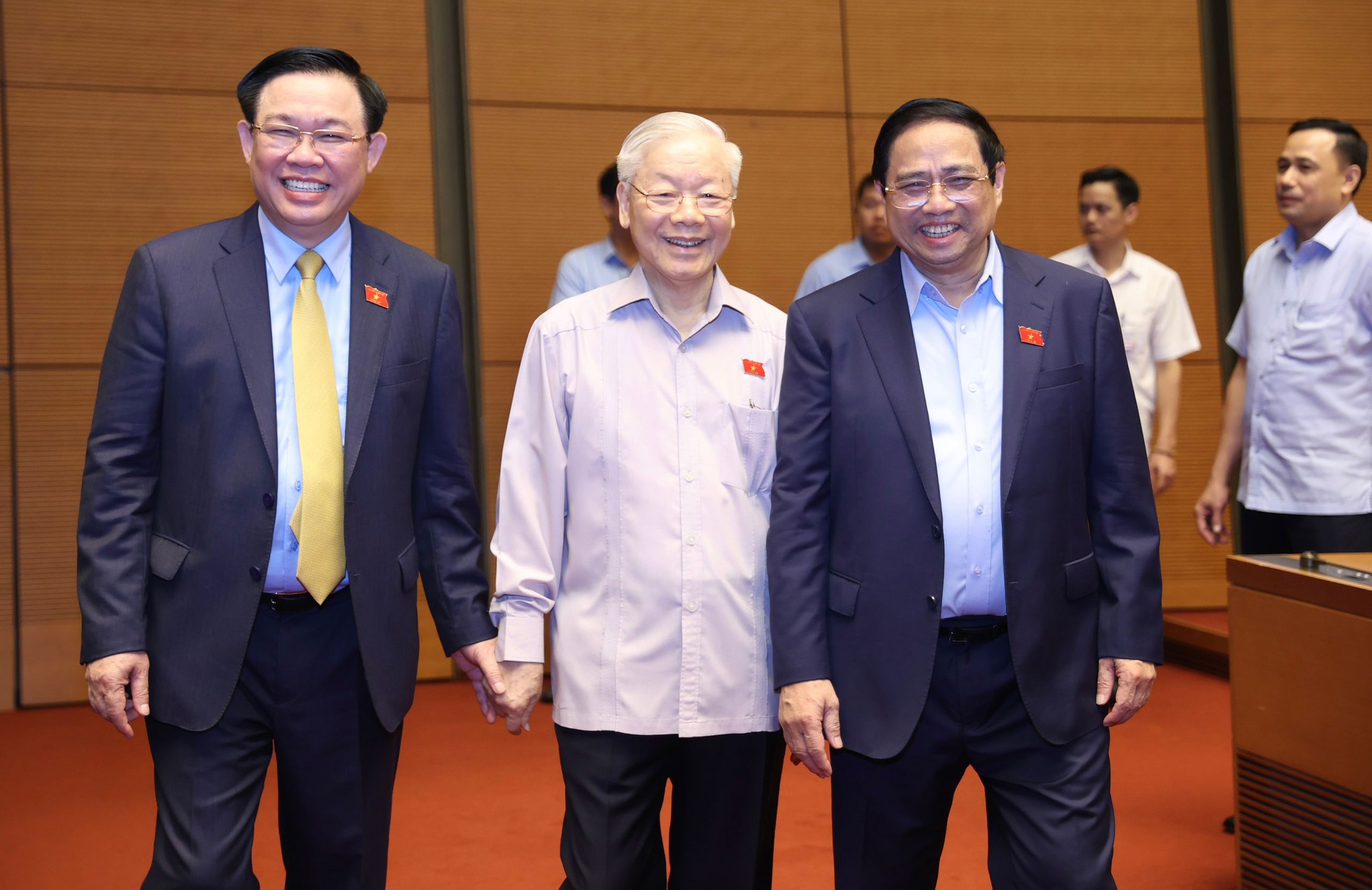
General Secretary Nguyen Phu Trong, Prime Minister Pham Minh Chinh and National Assembly Chairman Vuong Dinh Hue attended the meeting on June 9.
Compared to the current law, the draft removes the provision on the surplus method in land valuation methods. The reason is that this method is calculated based on assumed input information, leading to inconsistent application in practice, creating many difficulties in implementation.
However, in the review report, Chairman of the National Assembly (NA) Economic Committee Vu Hong Thanh said that the NA Economic Committee believes that the provisions as drafted are not really clear; they do not fully institutionalize Resolution No. 18 of the 13th Central Committee on continuing to innovate land policies, which requires that financial policies on land must ensure the harmony of interests of the state, land users and investors.
Ho Chi Minh City proposed to allow the application of the land price adjustment coefficient method (coefficient K) to calculate land prices in the draft resolution on piloting specific policies for the city. This method is transparent and also easier to implement. When the Land Law clearly stipulates, investors will know how much the input cost is in their financial plan, and relevant agencies will just apply it, very transparently...
Chairman of the National Assembly Vuong Dinh Hue
The proposal to clearly stipulate the principles and methods of land valuation in the draft law is also the view of National Assembly Chairman Vuong Dinh Hue when expressing his opinion in the discussion group on the morning of June 9. According to the National Assembly Chairman, in the Land Law, the most difficult thing is land finance, of which the most difficult is land price, so if the draft provides general regulations and the Government is assigned to specify details in the decree, "the National Assembly will have difficulty discussing and will not be confident in passing it".
Mr. Nguyen Xuan Thang, Chairman of the Central Theoretical Council, Director of the Ho Chi Minh National Academy of Politics, said that the draft stipulates "land pricing according to market principles", but that is not enough because "we are a socialist-oriented market". He suggested that depending on each specific type of land, there should be a scientific and transparent pricing mechanism, as well as an adjustment coefficient to price land in accordance with reality. This adjustment coefficient must meet the criteria of stability, avoiding one price today and another price tomorrow, making businesses feel uneasy about investing.
Explaining from the perspective of the drafting agency, Minister of Natural Resources and Environment Dang Quoc Khanh said that regarding land prices, the draft law has greatly decentralized to localities when assigning the People's Committee to submit to the People's Council to issue an annual land price list to ensure it is close to the market, effective from January 1, 2026. "Whether there are virtual prices or not, the locality will understand best," said Mr. Khanh. However, the drafting agency is also researching to add a mechanism that can be adjusted when land prices increase suddenly.
The most important thing is to compensate properly.
Land recovery, especially land recovery for socio-economic development for national and public interests, is also an issue that many delegates are interested in discussing. Compared to the previous draft law, the provisions on land recovery for socio-economic development in this draft have undergone major changes. Specifically, the draft law expands and lists 31 cases of land recovery in 3 groups: land recovery for construction of public works; land recovery for construction of headquarters of state agencies and public works; land recovery for socio-economic development for other national and public interests.
Delegate Tran Thi Hong Thanh (Ninh Binh delegation) said she basically agreed with the drafters' plan. However, Ms. Thanh was concerned that the content of "socio-economic development for national and public interests" had not been clarified.
Meanwhile, Deputy Truong Trong Nghia (HCMC delegation) commented that the Economic Committee's review report was very "intelligent" when it pointed out that in the draft, the section regulating cases of land recovery for socio-economic development for national and public interests did not include commercial housing projects or urban areas, but referred to Article 112, which stipulates that this is a project for auctioning the use of land funds created by the State through recovery. In the review report, the Chairman of the Economic Committee said that the draft law's provisions as above are unclear in content and inconsistent in approach compared to other cases. Therefore, the Economic Committee proposed to review so that it does not refer to regulations in other articles and clauses, but has specific and clear regulations right in the draft law.
Mr. Vu Hong Thanh affirmed that in cases of land recovery for socio-economic development, for national and public interests, the Economic Committee agrees with cases where the state recovers land to regulate the difference in added value from land due to planning changes, infrastructure investment, harmonizing interests between the state - people - investors and cases of land recovery to ensure conditions for implementing land-use investment projects.
Delegate Truong Trong Nghia also expressed concern about the fact that many projects are for socio-economic development but are not or are not directly for national or public interests but for commercial purposes. "Commerce is fine, but Resolution 18 stipulates the principle that if a project is for commercial purposes, it must be negotiated. Over the past decades, there have been many complaints and frustrations related to this land acquisition story," said Mr. Nghia.
According to Chairman of the Ho Chi Minh City People's Committee Phan Van Mai, economic and commercial purposes also contribute to national interests. It should not be understood that if you do economic and commercial work, you can negotiate and do whatever you want. "The important thing is that compensation is satisfactory, support policies and resettlement are satisfactory, then people will also benefit from that future project," Mr. Mai said, emphasizing that the most important thing is the policy directly to the people with the right to use the land.
Meanwhile, Deputy Hoang Quoc Khanh (Lai Chau delegation) was concerned about the difficulties of the self-negotiation mechanism for socio-economic development projects being implemented under the current 2013 Land Law. According to Mr. Khanh, the most difficult problem in the negotiation between people and enterprises is "what price". "There are projects where investors set very low prices, causing people to suffer losses. On the contrary, there are projects where people do not accept the price offered by enterprises, comparing this province and that province to demand a higher price. There are households whose agreed price should only be 800 - 900 million VND but they demand up to 3 billion VND. After negotiating for a long time, they refused, causing the project to be prolonged", said Mr. Khanh. He also gave an example in Lai Chau, where there is a hydropower project with a total capital of up to 200 - 300 billion VND, but there is a problem in the negotiation because only one household does not agree.
Do not arbitrarily adjust planning
Regarding land use planning and plans, when giving his opinion in the discussion group, Prime Minister Pham Minh Chinh emphasized that this is also an issue that needs to clearly define authority, decentralization, and delegation of power to reduce administrative procedures. "Land use planning both solves immediate problems and has a long-term vision for sustainable and long-term development. Currently, we see that land is a constant that cannot be created, it must be used and exploited effectively, including space in the sky, on the ground and underground, and also related to sea space," said the Prime Minister.
Land valuation is a difficult issue. How to value land in a way that is suitable for the development of a socialist-oriented market economy? The market fluctuates, if we follow the market, will we intervene when necessary? There needs to be state tools to allow the market to develop healthily but not create disruption and difficulties for people and businesses when they have to give up land to implement projects. If we cannot quantify it, it will not be close to reality, will be arbitrary, and will lead to mistakes.
Prime Minister Pham Minh Chinh
According to the Prime Minister, the amendment of the Land Law must "stick closely to reality, using reality as a yardstick", but it is impossible to demand that a single amendment cover all practical problems. The principle of amending the law is to try to resolve the problems and shortcomings that are being dealt with in the process of exploiting and using land resources. The Prime Minister also said that decentralization and delegation of power are very difficult. "For example, 10 hectares of rice, 20 hectares of forest must go to the Prime Minister, through many steps, taking a lot of time, wasting resources and opportunities", the Prime Minister said.
Regarding resettlement areas, the Prime Minister emphasized that this is an issue that people are very concerned about. "The Party's viewpoint is very clear: when reclaiming resettlement land, people who give up their land after a period of cultivation, exploitation and use must move to another place to ensure that the land is at least equal to or better than the old place of residence. We must specify and quantify the criteria for what is equal to or better," the Prime Minister stated.
National Assembly Chairman Vuong Dinh Hue emphasized that it is necessary to regulate how to collect opinions on planning and land use plans in a substantive manner, avoiding formalities. The National Assembly Chairman cited regulations in the draft that do not clearly state what percentage of people whose opinions are consulted agree for the government to approve the planning. On the other hand, the draft law also does not stipulate how to handle cases where people do not agree.
Similarly, with the regulations on reviewing and adjusting planning, the Chairman of the National Assembly said that this is a negative issue, which has been handled a lot in the past, so "if it is not regulated carefully, it will be difficult to operate, and if it is operated, it is not known whether it will be a headache or a disaster". Citing the situation where enterprises investing in agricultural production are very afraid of "sudden" planning adjustments, the Chairman of the National Assembly said that strict regulations must be in place to avoid violations and complaints.
Source link


![[Photo] Prime Minister Pham Minh Chinh starts construction of vital highway through Thai Binh and Nam Dinh](https://vphoto.vietnam.vn/thumb/1200x675/vietnam/resource/IMAGE/2025/5/12/52d98584ccea4c8dbf7c7f7484433af5)
![[Photo] Prime Minister Pham Minh Chinh receives Swedish Minister of International Development Cooperation and Foreign Trade](https://vphoto.vietnam.vn/thumb/1200x675/vietnam/resource/IMAGE/2025/5/12/ae50d0bb57584fd1bbe1cd77d9ad6d97)
![[Photo] Prime Minister Pham Minh Chinh works with the Standing Committee of Thai Binh Provincial Party Committee](https://vphoto.vietnam.vn/thumb/1200x675/vietnam/resource/IMAGE/2025/5/12/f514ab990c544e05a446f77bba59c7d1)










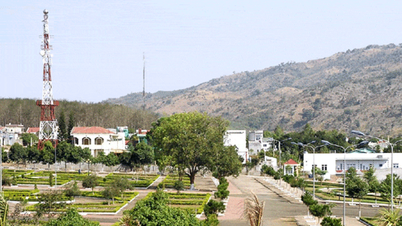



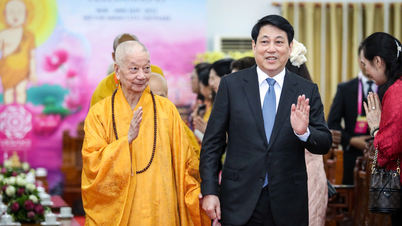
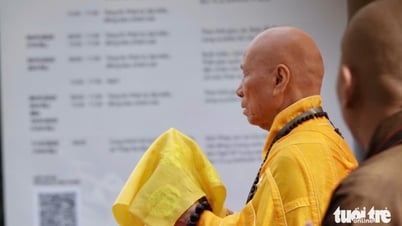

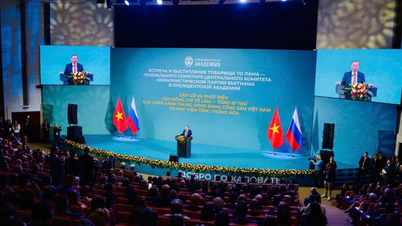







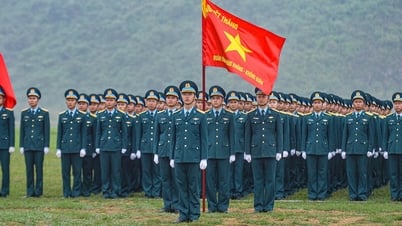

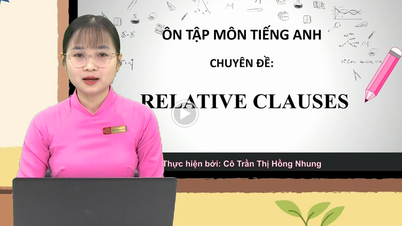




















































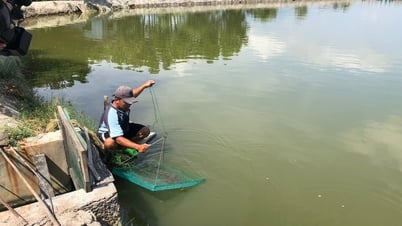

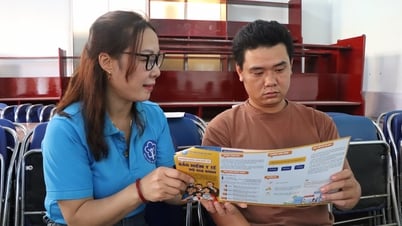
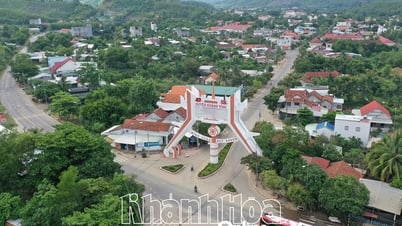










Comment (0)